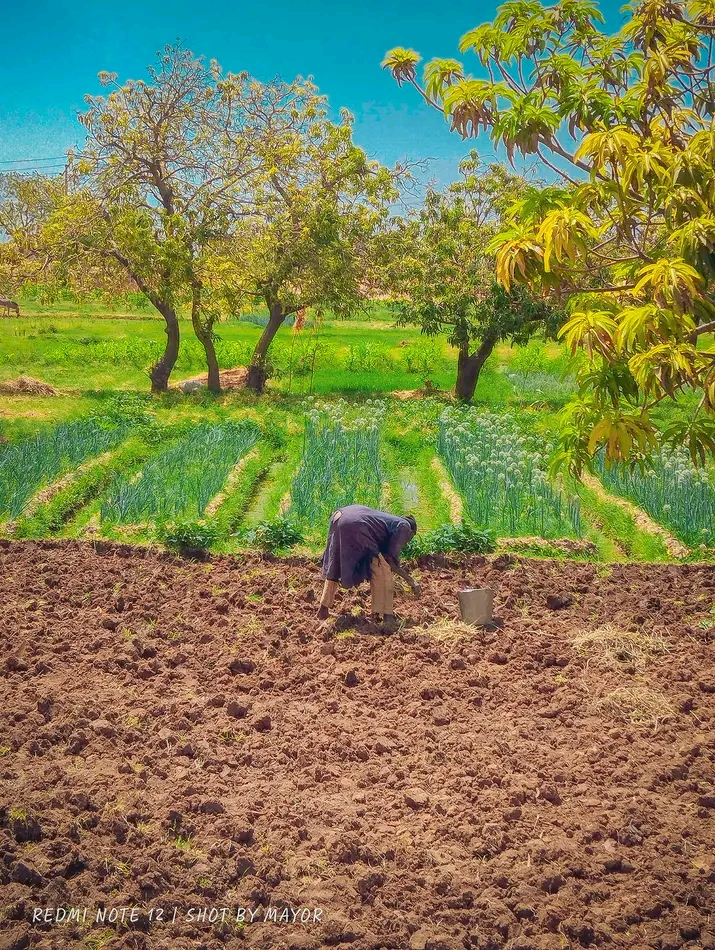The Federal Government, the International Institute of Tropical Agriculture (IITA), and the World Bank have concluded plans to partner on innovative agricultural practices to address food insecurity in the country.
This was the outcome of a high-level meeting between Vice-President Kashim Shettima and a delegation from the IITA, World Bank, and the International Food Policy Research Institute (IFPRI).
The meeting was held at the Presidential Villa, in Abuja on Wednesday.
Shettima said the goal was to increase yield, adding the IITA was in a vantage position to assist not just Nigeria but sub-Saharan Africa in repositioning the agriculture ecosystem.
This, according to him, can be achieved through smart agriculture, climate-resilient agriculture, and improved seedlings.
He noted the significant role of IITA in shaping Nigeria’s agricultural landscape since its establishment in 1967.
“We need IITA now more than ever before, as by 2050, we will be the third most populous nation on earth,” he said.
He also noted the interconnection between the economy and ecology, which he said had been negatively impacted by desertification, climate change, and insecurity challenges, particularly in the Sahel region.
He particularly said, “The productivity of our agriculture is poor, and is compounded by insecurity, which might not be unconnected with the challenges in the Sahel.”
The vice president, who called for close collaboration with the IITA, pointed out the importance of investing in agriculture as a business with the potential for huge returns on investment.
He, therefore, sought the institute’s assistance in providing high-quality seeds for maize and root crops, particularly cassava.
Shettima lauded the widespread adoption of IITA’s improved cassava seedlings in the Southwest region and urged the institute to extend similar initiatives to other sub-Saharan African nations.
Earlier, the Director-General, of IITA, Dr Simeon Ehui, thanked the vice-president for his leadership and commitment to the development of agriculture in Nigeria and support to the institute.
Ehui said that the IITA delegation was in Abuja for a strategic meeting that aims to review the institute’s partnerships, collaborations, and stakeholder engagements.
“This is with a view to support the federal government’s efforts in addressing food security in Nigeria and across the West African sub-region,” he said.
On his part, the Deputy Director-General, Partnerships for Delivery, IITA, Dr Dashiell Kenton, said the institute was supporting a few initiatives of the federal government, aimed at creating employment opportunities for young Nigerians in the sector.
“Youth in Agribusiness’ initiative of the Bola Tinubu administration is commendable and should be scaled up to empower more young Nigerians,” Kenton added.
He assured that the institute, through the initiative, would empower more small-holder farmers with knowledge of improved agricultural practices.
Also, the World Bank Practice Manager for Agriculture and Food Global Practice, Mr. Abel Lufafa expressed IITA, World Bank and other partners’ joy over the Tinubu administration’s interest and quantum of support to revamp agricultural productivity in the country.
He said that Tinubu and the vice president were demonstrating uncommon leadership in repositioning agricultural production in the country.
He added that the World Bank and other partners were impressed with the paradigm shift, especially the change to a government-led collaboration in the sector.
Similarly, a Senior Researcher at the International Food Policy Research Institute, Channing Arndt, said the organisation’s partnership with the IITA cuts across diverse areas of the agricultural value chain.
He, however, said that the primary objective was to support ongoing efforts to improve agricultural practices to rapidly boosting food production in the country.
NAN


